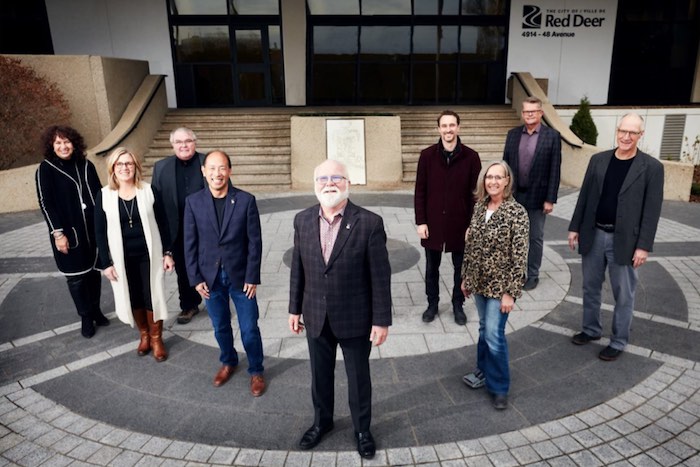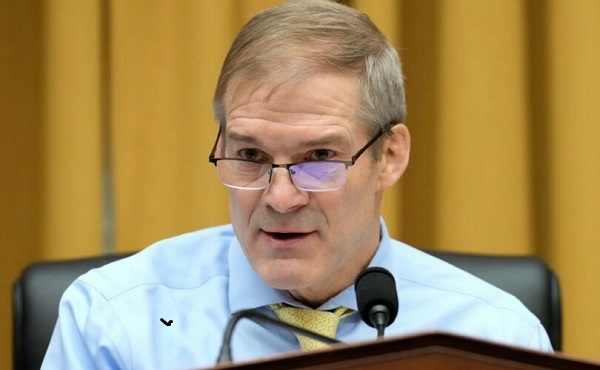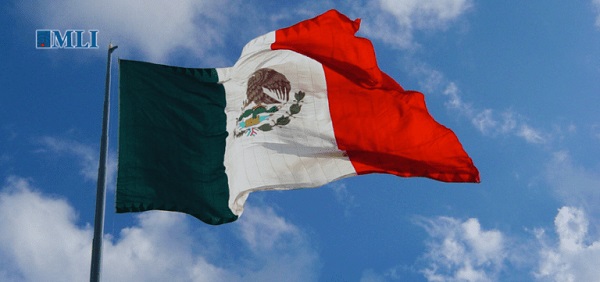City of Red Deer
City releases Annual Financial Report for 2022

Financial Statement Highlights & Analysis
Operating Results
2022 has been an unprecedented year for The City with the economy recovering from the COVID-19 pandemic and the Bank of Canada hiking interest rates to help mitigate rising inflation. These issues, not unique to Red Deer, are posing challenges to The City’s current financial strategy.
Total operating revenue has increased by $8.1 million (3%) over last year but fell short of budget by $14.7 million (4%).
User fees and sale of goods went up by $11.9 million due to an increase in service levels after the pandemic in recreation facilities, transit, and utilities. Most of the increase is in land sales.
Unfortunately, the recovery did not return The City’s operations to pre-pandemic levels. The expectation of revenue increases in those areas exceeded actual results.
Operating expenses were also heavily impacted. Pandemic recovery as well as higher inflation have contributed to the general increase in expenses over last year in the amount of $20.2 million (5%). These increases come in the form of higher fuel costs in transportation and fleet, higher transmission costs and tariffs for electric light and power, and increased salaries at recreation facilities, transit, as well as ongoing overtime for police and emergency services.
On an object basis, these increases are primarily impacting salaries, contracted services, and materials and supplies expense, offset by the decrease in grants to organizations. The City planned on these costs rising, however, and came within $3.5 million (1%) of budgeted expenses.
Due to lower-than-expected revenue and increasing expenses, The City reported an operating deficit of $43.5 million for the year ended December 31, 2022. This is $11.2 million (35%) over budget of $32.4 million.
Operating deficits can affect The City’s ability to fund operations in the future, as it has a direct impact on tax supported reserves. Reserves overall have declined by $21.3 million (11%); $18.7 million of that decrease is the Operating Reserve- Tax Supported (ORTS). The City budgeted a decline (use) of ORTS during 2022 and expected a year-end balance of $17.5 million, however due to the operating deficit, the actual year-end balance is now $8.9 million.
Taken together, tax-supported activities (general government services, protective services, transportation, community services, and recreation, parks, and culture) reported a deficit before capital related revenues of $71.5 million. This is mostly related to depreciation on tangible capital assets which The City does not fund through taxes, but through equity in tangible capital assets. The remaining 25% of the shortfall must be funded through ORTS.
The main areas attributing to the unexpected shortfall in tax supported operations is the RCMP contract and the Kinsmen arena contaminated site accrual as well as lower-than-expected tax-supported revenues, namely investment income, transit, recreation, and fines. These shortfalls are somewhat offset by higher staff vacancies and lower finance charges in transportation and higher community services grants.
Despite this concerning decline in ORTS, self-supported operations are holding steady with no significant change from prior year when taken as a whole. The City expected the use of reserves during the past three years: future budgets will need to improve these key reserves. A revised reserve policy will be forthcoming to Council with a recommended minimum balance for ORTS.
Capital Results
The City’s capital expenditures revealed a little less activity compared to last year. This is due to one of the COVID-19 grant programs ending in 2022, leaving the COVID-19 Resilience grant until December 31, 2023. Total capital grant revenue recognized in the year is $46.7 million, which is $8.6 million (23%) more than projected and $1.9 million (5%) more than last year. The City put more emphasis on utilizing grants while they are still available and less on borrowing and capital reserve.
In 2022, total capital expenditures of $105.2 million were financed with 44% capital grants, 33% reserve, 18% debenture borrowing, and 5% developer fees and other external sources.
The capital activities for The City have resulted in an overall annual surplus of $9.7 million, which is much lower than prior year and lower than budgeted. This shows that The City has become increasingly dependent on capital grants to grow its accumulated surplus. However, it is important to note that all of this surplus is used to purchase tangible capital assets and is not available for operations.


Financial Position
The statement of financial position tells its own story. Both financial assets and liabilities declined over last year. Municipal Sustainability Initiative (MSI) and Canada Community Building Fund (CCBF) advances for 2022 have fallen by roughly half. Although, this did not change the amount of grant revenue reported in 2022, it did reduce both government transfers receivable and deferred government transfers. This indicates potential declines in capital grant revenue reported in the future, especially as the COVID-19 Resilience grant comes to an end.
Because the decrease in financial assets exceeded the decrease in liabilities, the net debt has increased by $21.2 million (20%) from prior year.
Impacts from COVID-19 recovery and rising costs are reflected in The City’s financial position as well. Lower capital expenditures in 2022 have freed up more cash flows to invest in short term deposits to take advantage of the higher interest rates. Losses on sale of long-term investment has also occurred, resulting in lower investment earnings recognized as short term interest is allocated to The City’s various deferred revenue balances.
The market value of The City’s investments fell over 6% to the investment cost, the largest decline in recent memory. Actual investment losses are not realized unless the investments are sold. Management believes that these declines are temporary as interest rates stabilize and the bond market adjusts to a higher interest rate environment.
Debt Limit
The City’s investment portfolio is not the only area affected by a higher interest rate environment. The cost of new borrowing will increase into the foreseeable future. Though, The City has reported no substantial increase in finance charges for 2022, the debt servicing limit is more forward looking. Despite higher revenues resulting in higher debt service limit of $89 million, total debt servicing costs have risen at a higher rate, resulting in an increase in debt service limit to 37%, up from 36%. This is largely due to full years’ worth of payments on the $19 million debenture issued September 2021 for The Westerner Exposition Association. Although a 1% increase is not a cause for concern on its own, it is important to note that, going forward, the more expensive new debt becomes, the higher the debt servicing limit will grow relative to the debt limit.
This is illustrated by The City’s debit limit decreasing even though debt servicing increased. The debt limit percentage is now at 56%, down from 58% due to higher revenues and long-term debt remaining relatively unchanged.

In Summary
With no changes to service levels, no increases to property taxes combined with increased costs during the past three years has culminated in The City relying heavily on operating reserves, specifically the ORTS. This is a trend The City must improve upon in the upcoming years.
While The ORTS is an area of concern, other indicators do provide a positive picture. Utility operations remain stable and well managed, the use of debt has leveled off, and the investments made to our assets are strong. Administration has more control over costs, which are managed well, and less control over revenues, which have not achieved our planned levels.
The task before us is to maintain what we are doing right and to improve upon our key reserve balances. The City’s future budgets are moving away from a reliance on reserves as a funding source and plan to update the reserve policy to prop up reserve balances. Our next two years will also see the City develop a Long Term Financial Plan and an overall values based service level review.
Respectfully submitted,
Ray MacIntosh, MBA, CPA, CGA Chief Financial Officer
May 1, 2023

(a) Salary includes regular base pay, overtime, lump sum payments, gross honoraria, and any other direct cash remuneration. The City does not pay bonuses to employees.
(b) Employer’s share of all employee benefits and contributions or payments made on behalf of employees including pension, health care, dental coverage, group life insurance, long and short- term disability plans, professional memberships, tuition, and car allowance. Benefits and allowances also include supplementary employee retirement plan payments and moving and relocation allowances.
(c) Benefits for City Councillors include accidental death and dismemberment, group life, health care, dental coverage, registered savings plan, internet and phone allowances, transit, and Canada Pension Plan.
(d) Included in benefits for the City Manager is a lump sum payout from the Muni SERP retirement plan in the amount of $133 in 2022.
City of Red Deer
Over 25 Canadian cities support initiative designating December as Christian Heritage Month

From LifeSiteNews
Major cities that have signed on include Ajax, Durham, Sudbury, Mississauga, Ottawa, and Niagara Falls in Ontario, Alberta municipalities Red Deer and Okotoks, and Regina and Saskatoon in Saskatchewan. In British Columbia, Whistler and Prince George have also signed the petition.
More than 25 Canadian municipalities signed onto a proclamation declaring December as “Christian Heritage Month.”
The proclamation also asks provinces to take the initiative to declare the last month of the year in recognition of Christianity as an important part of Canadian heritage given the fact other faiths have special months of their own.
Major cities that have signed on include Ajax, Durham, Sudbury, Mississauga, Ottawa, and Niagara Falls in Ontario, Alberta municipalities Red Deer and Okotoks, and Regina and Saskatoon in Saskatchewan. In British Columbia, Whistler and Prince George have also signed the petition.
All of the cities have pledged to bring forth legislation that enshrines December as Christian Heritage Month into local law. Many have already done so.
The move by Canadian cities comes after the federal government and provincial governments have yet to proclaim December as Chrisitan Heritage Month.
According to the Christian Heritage Month Initiative, its mission is to have December “declared as Christian Heritage Month, recognizing the values of love, service, and compassion that define the Christian community.”
“The Christian Heritage Month Initiative is a dynamic, multi-denominational movement dedicated to celebrating the vibrant cultural, social, and artistic contributions of Canada’s Christian community,” the initiative says.
The initiative is under the leadership of Jay and Molly Banerjei, who are behind the Christian Music Festival. The organization says that the initiative “unites diverse voices and fosters a sense of belonging, enriching our nation’s identity and promoting inclusivity for all.”
Looking at Mississauga’s recent council motion that designates December as Christian Heritage Month, councillors have said its province under Premier Doug Ford should do the same.
Mississauga’s motion, which has been sent to Ford, was brought forth on October 30 by Councillor Brad Butt.
It reads that Christianity is among the “diverse faiths followed by Mississauga residents and one of the most followed religions in Canada and Mississauga. Christians have made valuable contributions to the cultural, social, religious, and humanitarian fabric of our city and have played an important role in shaping our diverse community.”
The Mississauga motion also makes a point that December is “marked by significant events and celebrations in the Christian calendar, commencing with the observance of Advent and culminating in the celebration of the birth of Jesus Christ, which is also known as Christmas.”
“Christian organizations and places of worship in Mississauga offer religious services, unique events, and initiatives that highlight a strong Christian heritage during the month of December,” and it’s “also widely associated with the tradition of gift giving and the gathering of family, friends, and people of all faiths, during the Christmas season,” its councillors wrote.
“Recognizing the month of December, which is a significant month in the Christian calendar, as Christian Heritage Month provides an opportunity for all residents to celebrate the history, traditions, and teachings of the Christian faith, promoting understanding and appreciation of the diverse religious and cultural heritage of our city.”
Canada is historically a nation founded on Christian ideals and principles. European settlers who came to Canada from France and then later from what is the modern-day United Kingdom were Christian and included missionaries who tried to spread the faith to the local Indigenous populations.
Canada has observed Christmas since 1641, well before its official founding, according to some historical records.
As reported by LifeSiteNews, Conservative Party of Canada (CPC) MPs have urged all Canadians to support a petition that calls on the federal government to proclaim December as “Christian Heritage Month.”
Last year, CPC MP Marilyn Gladu introduced a Private Member’s Bill C-369 that would designate December as “Christian Heritage Month,” saying this is only the “fair and right” thing to do.
The bill reads that “In the negotiations that brought about Confederation, Canada was originally named ‘Dominion of Canada,’ a name reportedly inspired by the passage in the Bible (King James Version) at Psalm 72:8, which says, ‘He shall have dominion also from sea to sea, and from the river unto the ends of the earth.’”
The bill states that December in Canada marks “significant events and celebrations in the Christian calendar, from the beginning of Advent to the celebration of the birth of Jesus Christ; And whereas, according to Statistics Canada’s 2021 Census of Population, Christianity is the largest religion in Canada, with over half of Canadians identifying as Christian.”
City of Red Deer
City Council looking for options to reduce hundreds of encampments

New actions for response to urban encampments being considered by City Council
New actions for The City’s response to urban encampments will be considered by Council on Monday, with a focus on interim and long-term solutions to homelessness. The proposed actions include everything from maintaining a balanced mitigation strategy to exploring interim housing solutions.
The report comes in response to Councillor Lee’s Notice of Motion re: Urban Encampment Responses that Council approved during the 2024 budget debate. The report reviews the past five years of data, analyzes service levels, and evaluates Corporate Administrative Policy 3141C – Urban Encampment Response. The key recommendations in the report focus on providing a balanced approach to mitigating the effects of encampments while working towards long-term solutions for homelessness. These recommendations include:
- Consistent Mitigation: Maintain The City’s current approach to encampment responses, ensuring the most balanced mitigation strategy available at this time to protect public lands while supporting vulnerable individuals.
- Advocacy for Shelter Strategy: Council will continue to advocate to the Government of Alberta for a comprehensive shelter strategy, including the development of a low-barrier 24/7 emergency shelter with a Recovery-Oriented System of Care.
- Review of Transitional Housing: Request that the Housing and Homelessness Integrated Committee (HHIC) review the potential for new transitional housing infrastructure as an interim solution to support individuals transitioning out of homelessness.
“The City’s current policy is still achieving its target of having sites cleaned within 14 days. Despite a substantial increase in encampments, responses have continued to be increasingly efficient, largely due to enhanced relationships and experience levels,” said Jodi Kelloway, Acting Superintendent, Social Wellness and Integration Supports. “In recent months, we have seen a significant rise in the number of people experiencing homelessness, with shelters operating at or near capacity. Many individuals living in encampments have limited or no alternative options available. It is important that we continue to improve our response while building capacity within the housing continuum that considers current realities and the unique needs of community members who are unsheltered. The actions we propose in today’s report are about building and expanding on what we already do.”
Under the current policy, The City has a level of service that urban encampments, debris, and belongings are to be removed within 14 days of an initial report, 90 per cent of the time. While The City’s current response to urban encampments is effective, with 98 per cent of camps being cleaned up within 14 days, the number of encampments continues to rise. In 2023 alone, 881 encampments were dismantled, with a projected overall increase of 75 per cent by the end of 2024.
Costs related to encampment clean-up have reached approximately $2.87 million over the last five years, shared among several City departments, including Parks, Public Works, and Emergency Services. Despite increased efficiency, the growing number of encampments presents ongoing challenges and concerns.
The City’s Encampment Assertive Outreach team continues to engage individuals living in encampments, providing referrals to social and housing services. However, the report notes that many individuals face barriers to accessing shelter due to personal circumstances, such as the need for privacy, the ability to be with their partners, accommodation for pets or possessions, highlighting the ongoing need for tailored solutions.
Councillor Lee’s January 8, 2024, Notice of Motion called for administration to consider the following:
- Reducing the time to dismantle encampments.
- Preventing establishment of encampments.
- Connecting rough sleepers with social supports and understanding overall community shelter capacity.
- Develop recommendations for individuals setting up or using encampments to encourage them to seek alternative shelter.
- How much money The City has spent on the cleanup of encampments over the past five years, and how much subsidy, if any, has been provided by other levels of government.
- Including the continuum of housing that is currently available in Red Deer and what is needed.
- That Administration report to council on the progress of the review of Corporate Administrative Policy 3141C – Urban Encampment Response”.
“The City of Red Deer is committed to supporting the health and safety of those sleeping rough, citizens who are enjoying parks, trails and public spaces, and staff responding to encampments,” said City Manager Tara Lodewyk. “Unfortunately, urban encampment work is a very short-term solution to a very complex health, housing, and public safety need in our community. The ability to reduce homelessness in Red Deer is significantly impacted by the lack of affordable and supportive housing supply. Until this is resolved, we will continue in this cycle of clean up.”
More detailed information is available in the City Council report located on the Council Meetings and Schedule page.
-

 Business2 days ago
Business2 days agoCBC’s business model is trapped in a very dark place
-

 Censorship Industrial Complex2 days ago
Censorship Industrial Complex2 days agoCongressional investigation into authors of ‘Disinformation Dozen’ intensifies
-

 Alberta2 days ago
Alberta2 days agoAlberta government announces review of Trudeau’s euthanasia regime
-

 Alberta1 day ago
Alberta1 day agoAlberta fiscal update: second quarter is outstanding, challenges ahead
-

 Business1 day ago
Business1 day agoTrump’s government efficiency department plans to cut $500 Billion in unauthorized expenditures, including funding for Planned Parenthood
-

 Brownstone Institute17 hours ago
Brownstone Institute17 hours agoFirst Amendment Blues
-

 Crime1 day ago
Crime1 day agoMexican cartels are a direct threat to Canada’s public safety, and the future of North American trade
-

 Bruce Dowbiggin2 days ago
Bruce Dowbiggin2 days agoThe Pathetic, Predictable Demise of Echo Journalism






